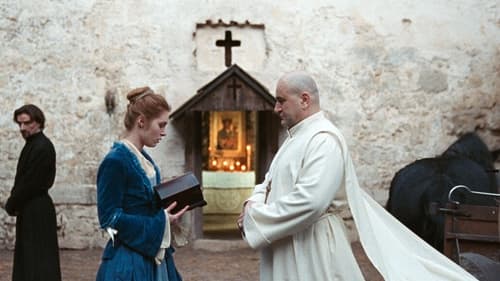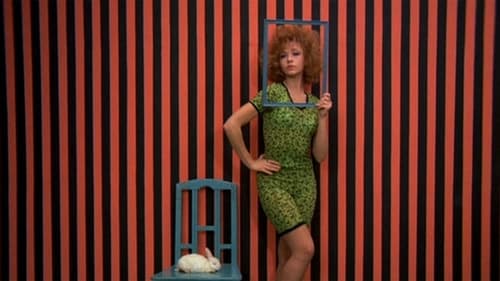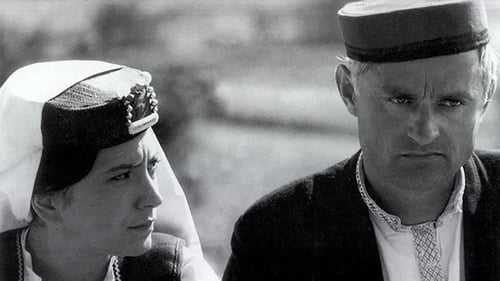
Jagoda Kaloper
Рождение : 1947-06-19, Zagreb, Croatia
Смерть : 2016-10-01
История
From Wikipedia, the free encyclopedia
Jagoda Kaloper was a Croatian painter and actress famous for groundbreaking roles in classic films in the former Yugoslav cinema.
A native of Zagreb and a graduate of the Zagreb Art Academy, Kaloper made her screen debut in the 1965 film Ključ, lacking any previous acting experience. She made a good impression and continued to appear in films, including the 1969 drama Handcuffs.
She is best known internationally for her role of a sexually liberated woman in the 1971 cult film WR: Mysteries of the Organism.
In later years, she occasionally appeared in smaller film and television roles, preferring to pursue her art career. She has also worked on production and costume design for films.
She is married to architect Radovan Tajder, they have one daughter, Ana Tajder.
Description above from the Wikipedia Jagoda Kaloper, licensed under CC-BY-SA, full list of contributors on Wikipedia.

Zabavljačica Sefardkinja
It is the mid 17th century. The Jesuits spread their influence in Central Europe. Maria, a young Countess lives in the castle. Father Had is a honest and ardent servant of the Society of Jesus. He is dedicated to his life's mission, and as such he is an ideal tool in the hands of his superiors, who have their own plans. Had becomes Maria's confessor. Her woman's charm, intelligence and energy, as well as her beauty, are a constant temptation to him. Jesuits are making pressure on Had to finally realize their plans. Will the Jesuits, at last, achieve their goals and take the castle?

Set Decoration
Joza, a middle-aged professional driver, offers Stella, a young and attractive prostitute, a ride from Zadar to Zagreb. Joza remembers his traumatic war experiences and his son who returned from combat with a severe disability. Underneath her seemingly cold and calculated demeanor, Stella is also a grieving parent. During the ride, the two develop a special relationship.

Joza, a middle-aged professional driver, offers Stella, a young and attractive prostitute, a ride from Zadar to Zagreb. Joza remembers his traumatic war experiences and his son who returned from combat with a severe disability. Underneath her seemingly cold and calculated demeanor, Stella is also a grieving parent. During the ride, the two develop a special relationship.

A young Croatian painter Josip Račić in the solitude of a Parisian attic encounters unusual people and falls in love with a cabaret singer. The ambience of the cheap Parisian hotel mixes in the painter's mind with memories of his childhood and youth in the Slavonian plain, all these things finding their expression in his paintings that start to attract the attention of experts...

Bobo, a young man, kills two criminals in self-defense. Afterwards, upon his lawyer's advice, he turns himself to the police. He ends up in a mental hospital from which he soon escapes and meets with his girlfriend. The police and a young ambitious reporter pursue him.

Tomislav is a former Partizan who continues his struggle after the war as a dedicated member of Tito's secret police. He meets and falls in love with a ballet dancer from a bourgeois family. His love affair with the class enemy and his slow adaptation to the post-war realities could seal his doom.

A committee made up to investigate illegal masonry in Yugoslavia causes more problems both for the builders and government, and in fact no one have any use of it. The pressure from all sides makes committee work less diligently.

Renata
The Spanish Civil War veteran and WW2 partisan Josip Crnković-Cloud faces eviction from his modest little house which is to be demolished soon to make space for new skyscraper. He tries to stop it in a legal way, but fails to break the shield of administrative bureaucreacy. He decides to use dynamite left from the war and simply blow out the house.

Seka
The manager of an export-import company meets a young girl who claims that her parents have been taken their house away after WW2. After finding out this to be true, he offers to marry her which she accepts. However, it turns out that the house needs thorough restoration. Since his salary is not enough to cover its massive expenses, he puts his honesty on test.

Jagoda
For being unable to find any decent job, an unconventional young man of working-class background gives up of all sorts of employment, and accompanied by his girlfriend, he tells his story in front of film cameras.

Scourged by the need to be different from his contemporaries and driven by an insatiable hunger for adventurous living, Marko, a young man of 25, returns from America where he has spent a few years. He wants to impress people in his native town, but eventually everything turns against him.

Jagoda
Фильм построен на параллельном монтаже двух сюжетных линий: первая рассказывает о сексуальных теориях доктора Вильгельма Райха, эмигрировавшего в Америку из Австрии, но, в конце концов, осужденного за оскорбление общественной нравственности; вторая, действие которой происходит в Югославии, в ироническом тоне соединяет документальную хронику сталинской эпохи с рассказом о страсти, вспыхивающей между свободомыслящей югославкой и закомплексованным солистом советского балета на льду.

Milja
Deeply hurt by his wife's adultery, a man leaves her and his son to live high up alone in the mountains of Montenegro. Many years later, the war breaks out and the two enemy factions must cross the very mountain. One of them seeks the man's help to find a path through the snow. Later that day, he finds out that one of the other side's members is no other than his son.

Višnja
Yugoslavia, 1948, the year of Inform Bureau's resolution and Tito's break-up with Stalin. The story takes place during a wedding in the Dalmatian inland in Croatia. Ante marries a much younger woman, Visnja; the groom's godfather is Andrija, the partisan war hero born in this very village, and a member of the new Communist political establishment. Two members of the Yugoslav State Security crash the traditional wedding ceremony. In the growing atmosphere of fear nobody knows who will be arrested.

A TV film based on single act drama written by Miroslav Krleza, that belongs to his expressionist phase. It was first published in 1922, and then regularly as a part of collection of plays called "Legends". By giving them this primordial biblical names, in this drama Krleza speaks about the intricate relation between two lovers, while interweaving reality and unreality, giving wider context of human relations to everything.

Nataša
After completing his military service, Boris Horvat finds himself at the crossroads. He thinks about enrolling at the faculty, but the job of a clerk at a bank where his father worked is already waiting for him. Boris falls in love with a female artist, but soon gets involved in another love affair, this time with his female colleague at work.

Rajka
A divorced journalist Marko Požgaj starts his working day by taking his son to the school. During the day many thoughts and images pass through his mind - the memories of childhood, ex-wife, current girlfriend, but mostly his father who died in a war.

Vera
Segment "Duga ulica" (A Long Street): A young man named Boris and a girl, Vera, live in the same neighborhood. They meet one night when she loses her key. Boris invites her to spend the night at his place; Segment "Čekati" (To Wait): Married students, Ivan and Sonja, live in an old woman's apartment. She is sick and the couple hopes that she will die soon, so that they may inherit her apartment; Segment "Poslije predstave" (After the Play): A husband and a wife lose the key to their apartment and have to spend the night in a hotel. The experience is wonderful and renews their feelings for each other, if only for a night.






